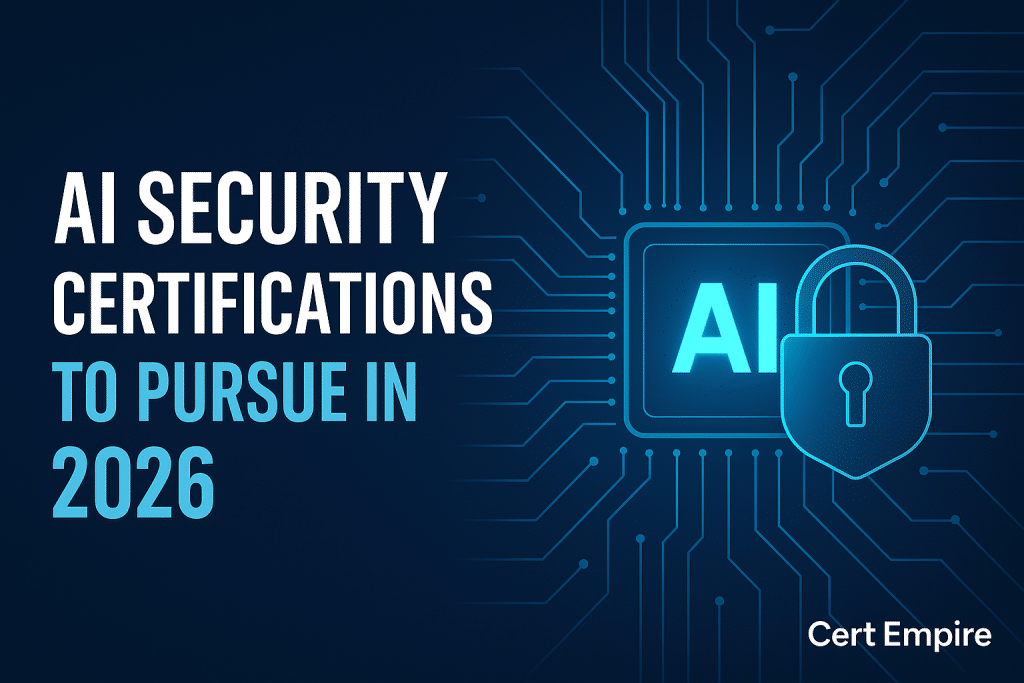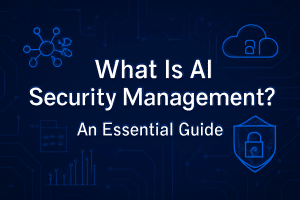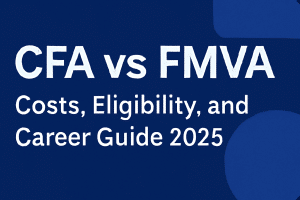The Rising Importance of AI Security in Modern Organizations
Artificial intelligence has become the foundation of digital innovation, yet its power also exposes new vulnerabilities. As organizations rely on AI systems for decisions, predictions, and automation, the challenge of AI security grows daily. Protecting models, data pipelines, and decision logic has turned into a critical mission for cybersecurity professionals who must balance innovation with safety.
Across industries, companies are developing and deploying AI faster than they can secure it. The AI lifecycle, from model design to deployment, faces constant threats, including data poisoning, model theft, and prompt injection. These emerging threats prove that securing AI systems is no longer optional; it’s an operational priority for every business using artificial intelligence in 2026 and beyond.
Modern AI governance frameworks now emphasize ethical controls, risk management, and accountability for decisions made by AI technologies. As this shift continues, those holding credible AI security certifications become essential in helping organizations create safer and more secure systems that the public can trust.
TL;DR:
As AI systems become integral to business operations, the need for strong AI security grows rapidly. In 2026, earning credible AI security certifications like CompTIA AI Security+, ISC2 CAIGS, EC-Council CAISP, or Microsoft AI Risk & Compliance Specialist can significantly boost your cybersecurity career.
These programs teach professionals how to secure AI, handle AI threats, apply AI governance frameworks, and manage risk management and compliance across the AI lifecycle. Through hands-on labs, training, and verified exam preparation, learners develop the skills to protect, defend, and govern advanced AI technologies confidently.
Cert Empire provides updated PDF exam questions, simulators, and trusted AI security prep materials to help professionals certify, complete, and lead in this fast-evolving domain.
Understanding the Role of AI in Cybersecurity
AI doesn’t just need protection, it is also a powerful defender. Cybersecurity teams increasingly rely on AI technologies like machine learning and large language models to analyze massive volumes of network traffic, detect attacks, and automate response strategies. Yet as these models become more capable, they also become targets themselves.
Recent studies highlight AI threats like adversarial attacks where models misinterpret manipulated inputs, and data exposure where sensitive information leaks through generative outputs. Attackers use these flaws to bypass filters, expose private data, or even access backend systems. The irony of AI security is clear, our most advanced defense mechanism can also become our weakest point if not properly secured.
Understanding this dual nature requires professionals who can identify, protect, and defend against cyber risks while enhancing AI systems’ confidence and reliability. The demand for those who can bridge this gap continues to grow, making AI security certifications a career investment with measurable impact over the next five years.
Skills and Knowledge Needed to Secure AI Systems
To effectively secure AI, one must blend the logic of cybersecurity with the science of artificial intelligence AI. Professionals must understand how models learn, how data can be compromised, and how systems interact across digital ecosystems.
Key skills for this field include:
- Implementing risk management frameworks tailored to AI systems.
- Understanding AI lifecycle phases and the vulnerabilities at each stage.
- Applying compliance standards from emerging AI governance frameworks.
- Detecting prompt injection and malicious retraining attempts.
- Running hands-on labs to simulate AI attacks and defenses.
The combination of AI, security, and compliance creates a deep technical foundation that enables cybersecurity professionals to develop safer algorithms, address complex challenges, and manage the integration of AI into secure infrastructures.
This continuous learning approach is what separates top AI security certification holders from general IT professionals, they have the knowledge, ability, and confidence to handle AI threats at scale.
Top AI Security Certifications To Earn in 2026
Quick Comparison Table: Top 5 AI Security Certifications for 2026
| Certification Name | Issuing Organization | Duration | Cost (USD) | Key Skills Covered |
|---|---|---|---|---|
| Certified AI Security Professional (CAISP) | EC-Council | 3 Months | 799 | Secure AI, Threat Analysis, Risk Management |
| CompTIA AI Security+ | CompTIA | 2 Months | 399 | Machine Learning Risks, AI Systems Security |
| Microsoft Certified: AI Risk & Compliance Specialist | Microsoft | 2.5 Months | 165 | AI Governance, Risk Controls, Compliance |
| ISC2 Certified AI Governance Specialist (CAIGS) | ISC2 | 4 Months | 799 | AI Governance Frameworks, Secure AI Systems |
| Google Cloud AI Security Engineer | 3 Months | 200 | Protect AI Workloads, Secure LLM Pipelines |
Each certificate emphasizes security, risk, and AI systems safety through a course that mixes theory, hands-on labs, and applied learning. Let’s explore what makes each one valuable.
Certified AI Security Professional (CAISP)
The CAISP certification equips cybersecurity professionals to identify and protect against advanced AI threats. Offered by EC-Council, this course explores secure AI lifecycle management, data defense, and AI attacks detection.
Learners gain expertise in risk management and AI governance, mastering both technical and policy aspects. Upon completion, participants can verify their knowledge by passing a proctored exam focused on AI vulnerabilities, model poisoning, and threats to AI systems.
Benefits:
- Globally recognized certificate.
- Updated content on AI technologies and secure AI frameworks.
- Designed for mid-level cybersecurity professionals building AI-focused skills.
ISC2 Certified AI Governance Specialist (CAIGS)
CAIGS targets professionals involved in AI governance, compliance, and enterprise-level security strategy. The course dives deep into AI governance frameworks, ethical auditing, and how to govern responsible AI practices.
Participants learn how to manage AI-based risks while ensuring compliance across regional standards. This certification proves crucial for organizations that rely on AI systems under regulatory oversight.
Key Concepts Covered:
- AI governance structure design
- Compliance alignment and verification
- Risk assessment in enterprise AI systems
CompTIA AI Security+
CompTIA’s AI Security+ certification bridges traditional cybersecurity and artificial intelligence AI. It helps professionals learn the methods to secure models, prevent AI attacks, and maintain confidence in AI systems through lifecycle control.
The course includes hands-on labs, model-based analysis, and training on how to assess and mitigate vulnerabilities. Passing the exam earns a respected certificate that signals practical skills in AI security.
Highlights:
- Affordable and globally recognized.
- Focus on cyber threats, prompt injection, and defense techniques.
- Ideal for early-career professionals seeking to develop AI security capabilities.
Google Cloud AI Security Engineer
This Security Engineer certification validates the ability to secure AI workloads within cloud ecosystems. Learners review AI systems architecture, identify misconfigurations, and protect against data leaks.
The course also includes guidance on AI governance, compliance with privacy laws, and mitigating AI threats in cloud models. After completion, professionals earn a certificate confirming their technical expertise in securing large AI systems.
Why It Matters:
- Focused on AI technologies used in enterprise settings.
- Strengthens team collaboration for cybersecurity professionals managing multi-cloud AI systems.
- Enhances career mobility in the future of secure cloud computing.
Microsoft Certified: AI Risk & Compliance Specialist
This certification focuses on ethical risk and governance for AI systems. The course blends theory with hands-on practicals, guiding participants to assess, review, and address AI risks under strict governance policies.
Professionals gain the confidence to lead cybersecurity teams, manage regulatory challenges, and ensure compliance within digital infrastructures. Passing the exam demonstrates readiness to support responsible AI governance strategies across organizations.
MIT Professional Education – AI Security and Governance
MIT’s AI Security and Governance course is tailored for senior professionals aiming to lead large-scale AI systems safely. It introduces risk management techniques, data ethics, and secure AI frameworks.
Graduates certify their expertise through real-world simulations and hands-on labs, gaining the ability to identify and address complex AI-based threats.
Course Highlights:
- Academic-level training with practical analysis modules.
- Global recognition and respected certificate.
- Designed for C-suite professionals and technical team leaders.
IBM AI Ethics and Security Certification
IBM’s program integrates cybersecurity, AI governance, and risk evaluation. It helps learners develop a complete understanding of AI systems, threats, and secure model maintenance.
Participants explore how to protect enterprise data, run analysis on vulnerabilities, and verify compliance policies. After completion, they earn a certificate representing advanced AI security knowledge and confidence.
EC-Council Certified AI Security Expert (CAISE)
CAISE expands the AI security field through specialized focus on detecting AI attacks, AI threats, and model exploitation. The course includes guided hands-on labs, training, and final exam evaluation.
Graduates develop the skills to defend, assess, and protect against malicious AI systems activity. The certificate is recognized globally and endorsed by leading cybersecurity organizations.
Why AI Security Certifications Matter for Career Growth
The demand for certified AI security professionals is climbing faster than the supply. Employers now expect professionals to prove their knowledge through accredited certifications that validate both theory and real-world skills.
Earning one of these AI security certifications improves career prospects, increases confidence, and provides access to global roles across cybersecurity and AI governance. Companies trust certified experts to lead teams, govern compliance, and protect enterprise AI systems effectively.
Beyond the certificate, these programs also help you learn continuously, develop leadership qualities, and maintain secure AI operations that align with evolving global standards.
Building AI Security Expertise Through Practical Learning
Effective AI protection is not achieved through theory alone; it demands hands-on labs, simulated AI attacks, and real-world scenario testing. Most AI security certifications now include training sessions that enable learners to identify weaknesses and develop practical skills.
At the end of each course, participants demonstrate their ability through a capstone exam or a practical assessment. This approach helps professionals prepare for real cyber threats, verify what they’ve learned, and apply that expertise confidently within organizations.
For those entering this field, structured training provides complete visibility into AI systems, risks, and defenses, turning theoretical knowledge into operational competence.
Compliance, Governance, and Risk Management in AI Systems
The future of AI safety depends on how effectively we govern it. AI governance ensures every AI system adheres to ethical and regulatory standards, while compliance frameworks validate those standards through continuous review and monitoring.
Certified professionals play a major role here, they verify, certify, and manage how AI is deployed, protecting both organizations and the public.
Building this infrastructure involves understanding AI governance frameworks, running regular analysis, and addressing vulnerabilities across all systems. These techniques strengthen confidence in digital innovation while keeping cybersecurity principles intact.
How Cert Empire Helps You Prepare for AI Security Certifications
Cert Empire gives learners an unmatched advantage in AI security certification preparation. The platform offers updated PDF exam questions, a modern exam simulator, and training access designed for cybersecurity professionals aiming to complete their certification journey with ease and confidence.
Why Professionals Choose Cert Empire
| Feature | Description |
|---|---|
| Real and Updated Exam Questions | Get verified AI security questions matching real exam patterns. |
| PDF + Simulator Access | Practice offline and test your knowledge in realistic mock exams. |
| Free 3-Month Updates | Stay aligned with evolving AI governance standards and AI technologies. |
| 24/7 Support | Our team assists you in preparing, downloading, and using your materials. |
| Instant Access | Receive your exam files immediately upon purchase for complete control of your schedule. |
Frequently Asked Questions (FAQs)
What are AI Security Certifications?
AI security certifications validate a professional’s skills in protecting AI systems from cyber threats and ensuring compliance with global standards. They help professionals gain expertise in identifying, managing, and reducing risks across the AI lifecycle.
Why should cybersecurity professionals pursue AI Security Certifications in 2026?
In 2026, the demand for experts who can secure AI has never been higher. Certified professionals can lead cybersecurity teams, develop safer AI systems, and protect organizational data against advanced threats while improving career growth and confidence.
Which AI Security Certification is best for beginners?
The CompTIA AI Security+ certificate is ideal for entry-level professionals. It provides structured training, hands-on labs, and a balanced approach to AI security, making it easier for newcomers to learn, identify, and defend against AI attacks.
Do AI Security Certifications include practical labs?
Yes. Most AI security courses include hands-on labs where participants can test AI systems, analyze vulnerabilities, and review security models. These labs build practical knowledge and ability for real-world defense.
How long does it take to complete an AI Security Certification?
Program completion varies by provider. On average, courses range from 6 to 16 weeks. Learners can schedule their training according to professional involvement and job timelines, ensuring steady progress toward certification.
What skills are developed through these courses?
These courses enhance skills in risk management, AI governance, data protection, and model analysis. Learners also gain confidence in assessing, verifying, and managing compliance while strengthening their ability to defend enterprise-level AI systems.
Can AI certifications boost cybersecurity career opportunities?
Absolutely. Certified cybersecurity professionals often earn higher salaries, get leadership roles, and join global organizations driving secure AI adoption. The credentials enable them to lead teams and manage complex AI threats confidently.
What are common threats in AI systems?
Typical AI threats include prompt injection, model manipulation, data poisoning, and unauthorized access to sensitive AI systems. Learning to identify and address these challenges is a major part of every AI security course.
How do AI governance frameworks support compliance?
AI governance frameworks define rules, ethical boundaries, and accountability measures. They help organizations govern, review, and verify every decision within AI systems, ensuring transparency, compliance, and reduced risks.
Is hands-on experience necessary before taking an AI Security exam?
While not always required, hands-on labs give a strong advantage. They enable learners to understand real AI vulnerabilities, develop analytical techniques, and demonstrate confidence during the exam or job interviews.
Where can I prepare for AI Security Certifications?
Cert Empire offers complete training solutions with updated PDF exam questions, verified AI security content, and an exam simulator. It’s the preferred platform for professionals who want reliable resources, fast access, and trusted guidance.
Do these certifications expire?
Most AI security certifications remain valid for two to three years. After that, professionals can renew or certify again to stay aligned with new AI technologies, governance policies, and updated cybersecurity practices.
Final Thoughts on the Future of AI Security Certifications
The next five years will reshape how organizations view artificial intelligence. As AI systems evolve, so do their risks, vulnerabilities, and governance demands. Those who hold respected AI security certifications will be at the forefront of securing intelligent systems against unpredictable threats.
Investing in AI security education doesn’t just build expertise; it builds confidence, leadership, and long-term career stability. Certified professionals become essential to maintaining ethical, transparent, and secure AI innovation.
Cert Empire remains committed to supporting that journey. With updated exam materials, verified training, and guided completion resources, every learner can protect, develop, and certify their way toward mastery in AI security.
Whether you’re entering the field or advancing your cyber career, Cert Empire helps you lead the future of intelligent defense with skill, strategy, and integrity.


























